A FORMER Indian Air Force (IAF) chief has revealed that India was ready to escalate a conflict with Pakistan if the Pakistan Air Force had successfully hit Indian targets in February.
By Sam Whitworth 03:11, Mon, Dec 16, 2019 | UPDATED: 03:41, Mon, Dec 16, 2019
India-Pakistan is a ‘dangerous situation’ says Malloch Brown
“Since the PAF had targeted military installations on the 27th of February (a day after India struck the Jaish-e-Mohammed camp near Balakot), the Pakistan Army had now become a legitimate target and had their strikes been successful, we would have put a considerable weight of attack on their forward brigades,” chief Dhanoa said during a discussion on ‘Understanding The Message of Balakot’ in Chandigarh. In its retaliatory attack Pakistan attempted to bomb military installations in Jammu and Kashmir’s Rajouri-Poonch with precision guided bombs a day after India’s strike on a terror camp in Balakot.
Reflecting on the Balakot strike the former IAF chief said he regretted that India “could not impose significant costs on the PAF on the 27th of February” due to technological disadvantage and added the people responsible for delay in proper upgrading of technology were also to blame for the missed opportunity.
The former IAF chief deeply regretted not having the technological advantage and is now pushing for better preparedness stressing the lesson was “technology matters”.
Mr Dhanoa also claimed the response in Bakalot signals a paradigm shift in how India responds to terrorist attacks.

India was supposedly ready to escalate the conflict (Image: GETTY)
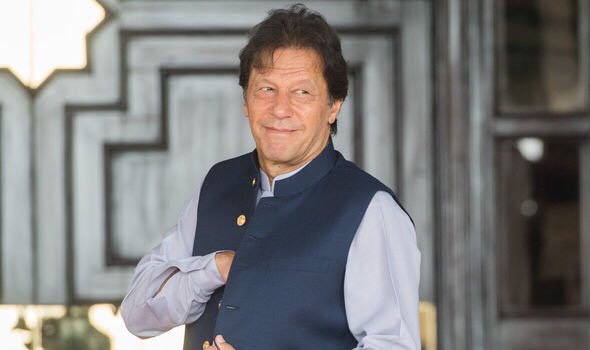
Imran Khan, Pakistan’s Prime Minister (Image: GETTY)
He pointed out that there was no military response from the Indian state after the 1993 bomb blast in Mumbai and the 2008 Mumbai terror attacks.
“The first response came after terror attack at Uri in 2016 and it was retaliated by the Army with an attack on destroying terror launch pads inside Pakistan Occupied Kashmir,” said Dhanoa, who retired from service on September 30.
He added Pakistan got the message that the new government will respond militarily to a major terror attack on its soil.
The shock news comes as India has joined forces with Japan to demand Pakistan take action on terror networks operating from Islamabad as tensions between the two Middle Eastern nations tips towards boiling point.
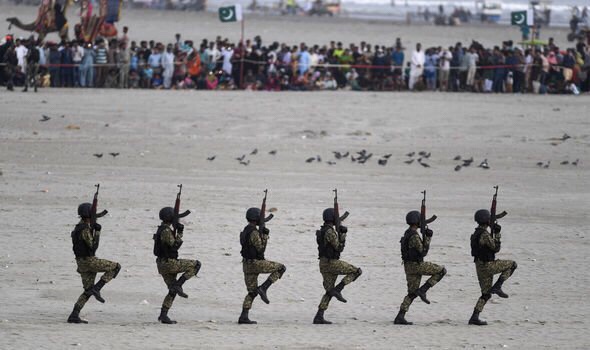
Tensions have recently been very high between the two countries (Image: GETTY)
They specifically ordered Pakistan to “fully comply” with its international commitments in cracking down on terrorism, including steps by the Financial Action Task Force (FATF), the global anti-terrorism watchdog. Defence minister Rajnath Singh and external affairs minister S Jaishankar led the India side while Japan was represented by foreign minister Toshimitsu Motegi and minister of defence Taro Kono, the Times of India reports.
A joint statement from India and Japan said: “The ministers underlined the need for all countries to ensure that all territory under their control is not used to launch terrorist attacks on other countries in any manner.
“They noted in this context the threat posed to regional security by terrorist networks operating out of Pakistan and called upon it to take resolute and irreversible action against them and fully comply with international commitments including to FATF.”
DON’T MISS
Iran threatened with ‘decisive’ action as militia attacks increase [LATEST]
US navy commander lashes out at Beijing for ‘bullying’ neighbours [INSIGHT]
North Korea performs ‘crucial test’ as Kim’s nuclear deadline nears [ANALYSIS]
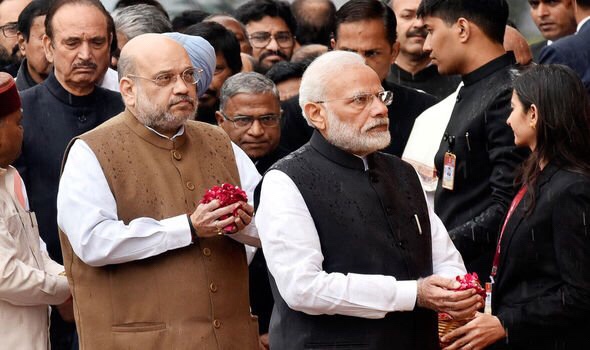
India and Japan called on Pakistan to crack down on terrorism (Image: GETTY)
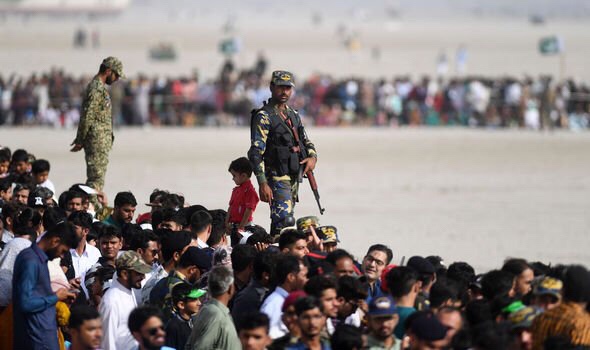
Tensions remain high (Image: GETTY)
It added: “The ministers condemned in the strongest terms the growing threat of terrorism and acknowledged that it constituted a major threat to peace and security in the region.”
India and Pakistan are currently embroiled in an extremely hostile relationship, following military confrontation on the border.
But, the countries on-going difficult relationship was analysed back in the 1980’s where scientists feared nuclear warfare between the countries would have a devastating impact on the planet
Muslim-majority Kashmir has long been an area of conflict between nuclear-armed India and Pakistan.
Russia: Defence Military demonstrates heavy artillery
But, back in the 1980’s scientists analysed computer simulations of India and Pakistan entering into a nuclear war with each other, the ‘India-Pakistan Model’, which produced devastating results, it has been revealed.
In ‘What Does Rain Smell Like?’ by Simon King and Clare Nasir, the meteorologists explained how scientists looked at the impact on the atmosphere if an all-out nuclear war did break out between the countries.
The book explains how in the 1980’s both countries had around “50 Hiroshima-type atomic bombs”, and the model looked “at how much smoke would be produced from fires” if they were all used.
It reads: “Scientists predicted that five million tonnes of smoke would be injected into the atmosphere, which would gradually affect the whole planet.
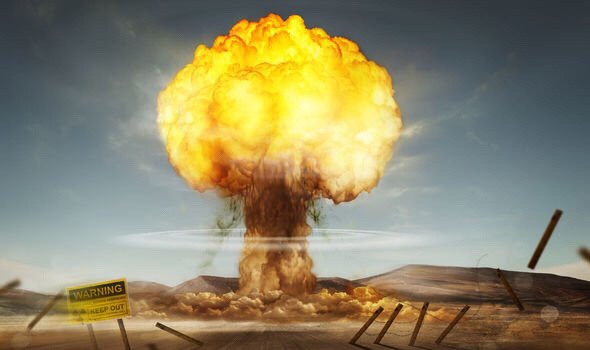
The scientists analysed computer simulations of nuclear war between the two countries (Image: GETTY)
“There would be regional differences in how temperatures would react, but landlocked countries would see temperatures below freezing.
“It would be darker, and due to the ozone being destroyed, the amount of UV light reaching Earth’s surface would be much higher.”
The pair concluded “a lot of people” were starting to take notice of the catastrophic “consequences of starting a nuclear war” and quickly realising how triggering a nuclear war would be “suicide for the country starting it” as well as “annihilation for the target”.
No comments:
Post a Comment